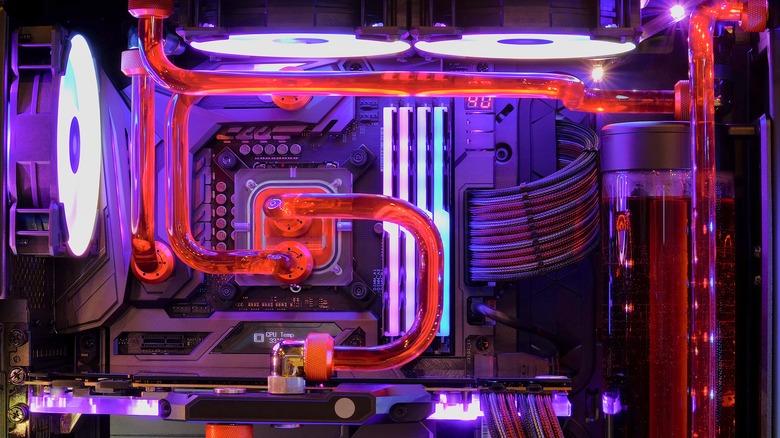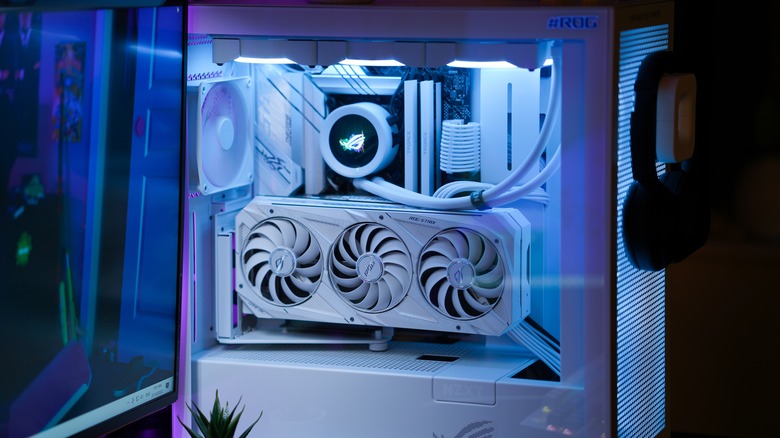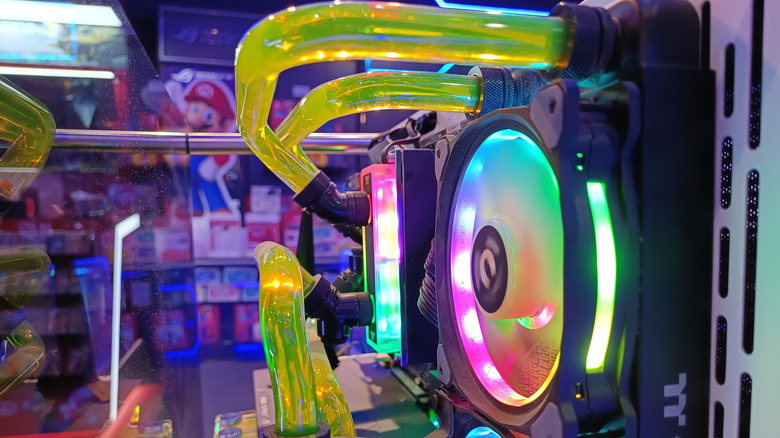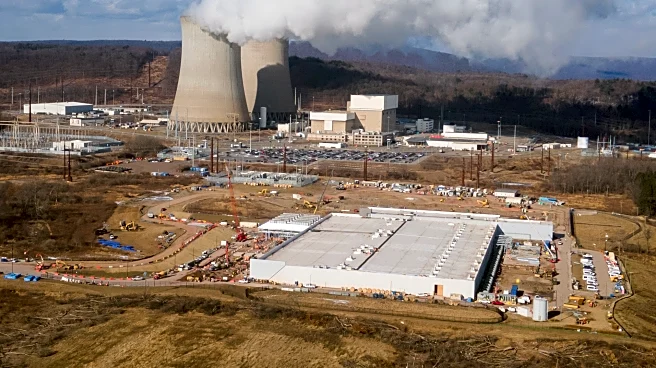
Keeping your PC properly cooled is one of the most important things you can do to keep it running smoothly and extend its lifespan, and water cooling continues to be a popular choice. Computer hardware
continues to get more powerful every year, enabling users to increase productivity and powering the latest games and software. But the more powerful the hardware, the hotter it can get; improperly managed, this can lead to overheating and failure. Although you should think twice about water cooling a PC built for everyday tasks, it's undoubtedly a very effective option for PCs with powerful gaming or productivity CPUs. The choice then comes down to whether you should get an all-in-one (AIO) cooler or build a custom cooling loop.
Both an AIO and a custom cooling loop operate by pumping water through water blocks mounted to the CPU or GPU. The water draws heat away from the chip and then passes through the loop until it reaches a radiator. Fans attached to this radiator cool the water by blowing the heat outside of the system, and this cooled water then goes back through the system.
The main difference between an AIO and a custom loop is that the former comes as a single piece, whereas the latter is made up of multiple pieces that you put together yourself. In general, users agree that an AIO is a great option for most people, while custom water loops are best for those with specific needs and have building PCs. Here's what you should know.
Read more: The Most Expensive Game Consoles Of All Time, Ranked By Launch Price
Custom Loop Coolers Are Great For Cooling Multiple Components

Experienced PC builders generally agree that custom loops are best for high-end systems, especially those with multiple components that need dedicated cooling solutions. For example, those who want to cool both their CPU and GPU should consider a custom loop. On the other hand, for those who only need to cool the CPU, a high-quality AIO is more than enough to get the job done. User TpmeNugget on PCPartsPicker summed things up well, writing, "AIOs are for people that want their [CPU] to be very cool but have a bigger budget than that of someone with an air cooler. Custom loops are for high-end builds where you are cooling multiple parts and want really nice aesthetics."
Moreover, other factors can matter more for cooling than whether you're using an AIO or custom loop. For instance, an AIO with a larger radiator will help keep temperatures lower than a custom loop with a smaller radiator. In response to a PCPartPicker post asking whether a custom loop with a 240mm radiator would have an advantage over an AIO of the same size, user Chapeau advised, "Not necessarily. You're relying on the same cooling area after all... If everything is the same, then the cooling is the same!" However, AIOs need to be replaced entirely when they stop working, whereas custom loops may only require you to replace a single component, depending on the point of failure.
An AIO Cooler Is The Hassle-Free Option

Many PC builders and owners agree that AIOs are the best choice for most people because they're convenient. A high-quality custom loop requires several discrete components, the total cost of which can be significantly more than an AIO. Moreover, putting one together is an involved process that can even require bending and cutting the tubing yourself if you use hard tubes. After installation, a water loop requires maintenance, unlike an AIO. And a mistake can be devastating, especially if it leads to a leak that soaks your system. Take it from Reddit user u/-UserRemoved-, who advised a first-time PC builder, "Given the additional research, planning, and maintenance required to build a custom loop, being familiar with assembly and disassembly is a prerequisite. Not impossible for a beginner, but certainly not recommended." Others seem to agree that, although a newbie with a can-do attitude can build a great water loop, it's not for the faint of heart.
When building a PC, it's always important to consider the entire system holistically rather than focusing on any individual component. What can matter more than your choice of cooling solution is optimizing the airflow in your gaming PC. Making sure your rig can efficiently pull in cool air and push out hot air will have a much greater impact on thermals and performance than the type of cooler you use.
Want the latest in tech and auto trends? Subscribe to our free newsletter for the latest headlines, expert guides, and how-to tips, one email at a time.
Read the original article on SlashGear.










